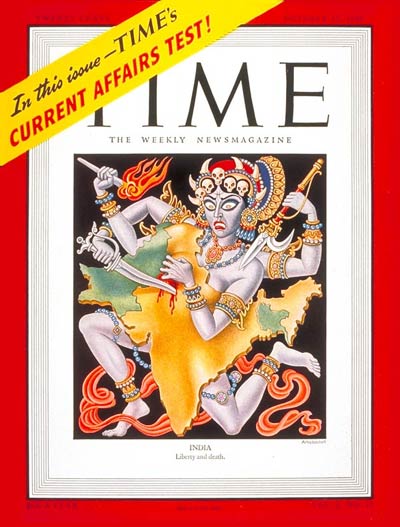Partitioning of India: consequences
CONSEQUENCES Of PARTITION
a) The due date for the partitioning led to massive intercommunal violence between Sihks, Muslims, and Hindu. The deplorable honour killing of women in order to evade their being dishonoured was widespread. Lahora was the sight of war torn conflict. This city continues to suffer as it’s cosmopolitan traditions have vanished. The India dynasties were consolidated into India.
b) the lack of preparation for mass migration: Britain completely abdicated itself of all blame for the partition crisis. Cyril Radcliff knew that his actions would have caused the lost of human life: but Radcliff had no option and no alternative. His decisions – although made to be sound rational ones – resulted in mass killings. Muslim Sihk violence was the most intense in Punjab. Britain did not have enough troops to prevent that massive genocidal conflict. Britain’s transference of power was too quick.
c) the enforcement of Partition in Punjab against people’s will: the massive population shifts were an atrocious consequence of Partition.
d) the decline of Lahore and Pakistan as a result of Partition: Lahore was given to Pakistan by Mountbatten’s partition plan. This sectioning off of regions led to massive migration. Some were subject to armed bands on the road to their new homelands. Such migrations are target of violent clashes. Lahore, having been sectioned to Pakistan, became culturally homogenous; the collapse of a liberal, tolerant, and cosmopolitan urban centre has led to a conservative and pseudo uni-religious society.
POST-RHODESIAN ZIMBAWE: Transitions to African majority rule
RHODESIAN BUSH WAR (1965 – 1979) THE LIBERATION WAR
RHODESIAN BUSH WAR (1965 – 1979) THE LIBERATION WAR
The Unilaterally Declared of Independence creating a Country of Rhodesia’s (1965 – 1979) white minority under the leadership of Ian Smith refused to make significant changes to the constitution to advance universal suffrage (White’s had 95% of the voting power in 1961). He was hesitant to make concessions to internal pressures for constitutional, political rights which was sorely needed. Universal suffrage would have massive political repercussions for the white Europeans since a majority of the population was African black, disadvantaged, exploited, and psychologically subordinated. Ian Smith felt that their European civilization and culture (economic, infrastructure, political, legal, religious) would be destroyed without administrative control by a competent white government. In characteristic rhetoric, Ian Smith wanted blacks and whites to work together but desired white control for at least “1,000 years”. Whites widely held that Blacks were not capable in the short to medium term to build a prosperous country without paternal support. Smith’s justification for opposing African majority rule was that blacks were not capable of self-rule. Blacks were opposed to socioeconomic backwardness, which the whites actively perpetuated through economic exploitation, through racially motivated institutional discrimination: denying education, opportunities for advancement, protection of white interests (or the White Nation of Rhodesia). On either side then, justifications for positions are cloaked in ideology (Communist, Capitalist, Social Democratic, Christian) that suits their ultimate objectives. The austerity and violence in Rhodesia is a product of the insecurity of white settlers who had lived their entire lives in Rhodesia.
The RHODESIAN BUSH WAR as an IDEOLOGICAL CONFLICT
[THE FILM BELOW IS GRAPHIC: VIEWER DISCRETION ADVISED]
One way Ian Smith and the Rhodesian whites framed the Bush War (1964 – 1979) was to cast the violent uprising led by Nkomo ZUPA (Soviet leaning) and Mugabe ZUNA (Maoist leaning) as a conflict along ideological lines ONLY. The following film attempts to paper over the obvious racial and tribal conflict by sighting the Communist politics of these competing ZUPA and ZUNA movements as the source of conflict. It is not racial it is ideological according to Smith. This is plausible but an obvious misdirection at the inherent issue of racial discrimination at the institutional level. There is also a nationalist sentiment to the conflict. Mugabe’s Shona fought with the Nkomo Ndebele-speaking south in an uneasy Patriotic Front. These parties were militant and actively engaged in violent conflict amongst eachother and against European whites. Mugabe claimed that non-violent approaches had failed to achieve his goals. Mugabe’s forces engaged in Terrorism or Freedom Fighting/Intimidating Authorities to support revolution: their guerilla warfare was gruesome with widespread murder as this film demonstrates. This violence is perpetrated by both sides against civilian bystanders. “Only a dead imperialist is a good one”: Mugabe used dangerous language about how the settler government needed to be removed. In accordance with Communist politics, priests were brutally murdered (Spanish Civil War, for example). Mugabe, as any African nationalist movement, embraced European ideas/principles in order to accrue power through the ideology of Nationalism as well as Communism. Mugabe advocated for a none-race based polity which in essence meant African majority rule. On either side then, justifications for positions are cloaked in ideology that suits their ultimate objectives.

